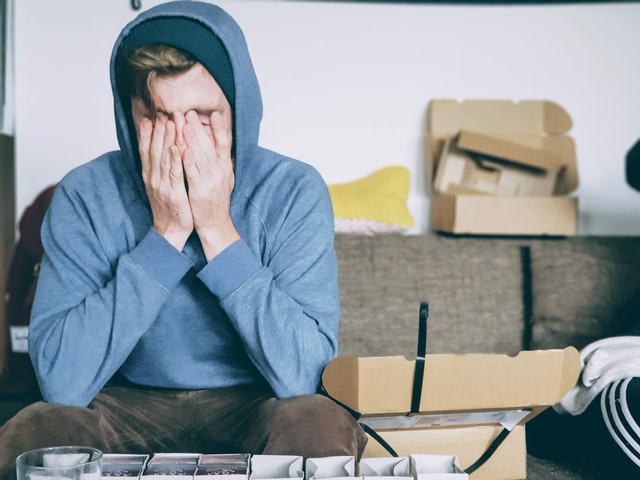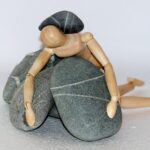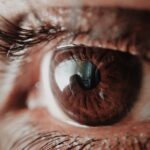Does CBD oil for anxiety work? In recent times, the impact of anxiety has greatly increased in our world. According to some surveys, up to 33.7% of the population will suffer from anxiety disorder during their lifetime. Moreover, this condition has not only risen amongst the adult population but has also risen among young adults and teenagers noticeably. In fact, some consider that there is an anxiety epidemic in America and the rest of the world. There are many reasons for this, our fast-paced lives, social comparison, and stress are just some of them.
For all these reasons, the use of anxiolytics and antidepressants has risen dramatically in the past decades. Also, many people are growing dependent on these medications and find it too hard to quit. That’s why today, an ever-increasing number of people look for natural alternatives to try and ease anxiety. In later times, substances like kratom have gained a lot of popularity in America to fight anxiety. Also, CBD oil is widely used worldwide to alleviate this condition. So, we’ll explore the latter in this article and explain how CBD oil for anxiety works.
What is Anxiety?
Basically, anxiety is a natural response to a threat. When we feel a threat of danger, our body reacts in a way that prepares us to combat this problem. This is called the fight or flight response or acute stress response. So, a certain level of anxiety is normal and helps us combat danger or escape from it. But the problem comes when we feel anxious for no reason. When this happens, we could be having a panic attack or be suffering from an anxiety disorder.
So, considering the above, there are two types of anxiety:
- Healthy or normal anxiety: it’s the one that helps us being alive and safe from danger.
- Pathologic anxiety: it’s the anxiety that makes us feel unhappy. This type of anxiety includes things like phobias, obsessions, manias, etc. This type of anxiety can appear as a reaction to some specific event, but it can be also a generalized disorder.
Causes of Anxiety
As we explained above, the perception of danger or threat will trigger the so-called fight or flight response and we will experience anxiety. Whereas this response is completely normal, it can become a problem when we suffer anxiety when there’s no real danger to our lives. But what are the main causes of anxiety?
There are different factors that can cause anxiety:
- Genetic factors: It is not uncommon that there are various members of the family who fight against anxiety.
- Physical factors: Some studies have concluded that a chemical imbalance in the brain can cause anxiety.
- Environmental factors: Stress at work or at the school, social phobia or problems at home can also cause anxiety.
Symptoms of Anxiety
Anxiety can cause a wide variety of symptoms, and every person can feel anxiety differently. Nevertheless, there are some symptoms that are very frequent among those who suffer from an anxiety disorder:
Behavioral symptoms:
- Avoiding certain people, places, or situations
- Leaving things for later
- Social isolation
- Uneasiness
- Exaggerated startle response
- Repetitive behavior
Physical symptoms:
- Loss of appetite
- Difficulty breathing
- Profuse sweat
- Rapid heartbeat
- Dizziness
- Muscle tension
- Frequent micturition
- Stomach pain
- Headaches
- Sleep problems
- High blood pressure
- Chest pain
Cognitive symptoms:
- Obsessive thinking
- Memory loss
- Loss of concentration
- Rumination
- Inability to make decisions
Psychosocial symptoms:
- A feeling of being disconnected from the outside world
- Feeling of guilt
- Nervousness
- Derealization

Traditional Methods to Fight Anxiety
Nowadays, there are many methods to combat anxiety. The most common methods are:
- Pharmacological: typically, when someone suffers from a general anxiety disorder would take anxiolytics. These are very effective to combat panic attacks and obsessive behavior. But the main problem with these types of prescription medicines is that they can trigger an addiction.
- Cognitive-behavioral therapy: These are a series of techniques that teach the individual how to cope with anxiety. For instance, using these techniques the person will learn how to change his or her thoughts, beliefs, and attitudes.
- Relaxing techniques: These try to teach the individual how to relax, breathe, and cope with panic attacks.
What is CBD Oil?
CBD or cannabidiol is a cannabinoid that is present in the cannabis sativa leaf. But, contrary to THC, cannabis main cannabinoid, CBD has no psychoactive properties. However, like THC, CBD acts upon the cannabinoid receptors in our system.
More specifically, CBD acts on the CB1 and CB2 receptors located in our brain, spinal cord, and peripheral nervous system. The cannabinoids will act on these receptors, activating and stimulating our system’s natural response to pain, anxiety, and stress.
CBD Oil for Anxiety
Recently, many people who suffer from anxiety have started using cannabidiol to try to ease this condition. Additionally, recent studies show a great potential of CBD as a treatment for generalized anxiety disorders. Also, some studies have found that CBD can positively reduce social anxiety symptoms. And since it does not have psychoactive effects, using CBD oil for anxiety will not make you high.
Moreover, the lack of or minimum side effects make CBD oil a promising treatment for anxiety and other disorders. Although CBD effects on chronic anxiety disorders are yet to be studied, there is evidence that it can help in general anxiety disorders.



